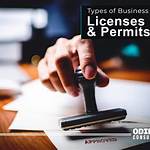If you’re looking to start your own food truck business in the big apple, it can be an exciting and profitable venture. However, it can also be a daunting task to navigate the many regulations, permits, and licenses required to get started. With some careful planning, research, and plenty of patience, you can launch your very own mobile food business in New York City. This guide will walk you through the essential steps to take and resources to consult to get started on your food truck journey.
1. Research the Food Truck Scene in NYC
The first step to starting a food truck in NYC is to conduct extensive research on the food truck scene in NYC.
You need to understand the demographics and preferences of the NYC market. Identify what food is popular, where the best locations are, and other details that could affect your business.
Use online resources such as the Street Vendor Project and NYC Food Truck Association to help you.
2. Create a Business Plan
A business plan is a roadmap that will guide you through the process of starting and running a successful business. You can use it to secure funding from investors or a bank and as a guide to keeping your business on track.
Include details about your business, such as mission statement, target market, competition analysis, marketing strategy, and financial projections.
Don’t rush through this step. Create a comprehensive plan that highlights your strengths, weaknesses, opportunities, and threats.
3. Get Your Licenses and Permits
To operate a food truck in NYC, you need a variety of legal documents, including licenses and permits.
The New York City Department of Health and Mental Hygiene is responsible for regulating all food service establishments. You will need to obtain a food service permit, a food protection certificate, and a mobile vending permit from the department.
Consult with a lawyer or business consultant to ensure all documents are secured.
4. Choose the Right Vehicle
Your food truck’s success depends on having a reliable vehicle that meets all the requirements of the NYC Department of Transportation.
Consult with a mechanic or an experienced food truck operator to help you choose the best vehicle for your business. Consider factors such as the type of cuisine you’ll be serving, the size of the equipment you’ll be using, and your budget for the purchase and operating costs.
5. Purchase Quality Equipment
The quality of your food and the efficiency of your workflow depend on the equipment you use. You need to invest in good quality equipment such as grills, fryers, refrigerators, and ovens.
Consider purchasing used equipment in good or great condition, that continue to perform for many years without breaking down frequently.
Ensure that all equipment is safe, sturdy, and meets the health and safety standards set by the NYC Department of Health.
6. Hire a Team of Professionals
Running a food truck business in NYC requires a team of professionals to make sure everything runs smoothly. Hire a team of experienced and skilled professionals like assistants, chefs, and drivers.
If you can’t afford a team right away, bring in freelancers for specific tasks or work in partnership.
Make sure they share your vision and work ethics to ensure the success of your business.
7. Develop Your Menu
Your menu should reflect the NYC market needs and set you apart from the competition in terms of menu and service.
Consider developing a menu that is simple yet nessesary, affordable, and with fresh food, keeping the quality of standards high.
Work with an experienced chef that can help you bring new and unique dishes to your menu and remain in compliance with City’s rules around food handling,
8. Promote Your Brand and Business
The key to success in the food truck business in NYC is branding and effective marketing. Use social media, business listings, and local communities events to your advantage.
Participate in food truck rallies, and investment in social media, flyers, banners, and logo
Make sure your brand and logo are visible and recognizable, and offer great customer service to your customers.
9. Monitor Your Costs and Revenue
Running a food truck in NYC can be profitable if you are managing your cost and maintaining the quality.
Create a spreadsheet to keep track of your income, expenses, and revenue over time.
Only operate in locations or events where there is a healthy profit margin and with lesser regulations.
Always keep an eye on your food inventory and equipment to avoid last-minute replacements.
10. Keep Learning and Improving
Successful businesses in NYC are always ready to learn and improve to be at the top.
Always ask for customers feedback about your menu and service, stay up-to-date with market trends, and attend food shows and conferences.
Keep educating and re-training your team to keep up with new regulations and finding new opportunities to grow.
Planning Your Food Truck Business
Starting a food truck business in NYC can be daunting, but as with any business, it starts with a plan. Here are 10 steps to consider when planning your food truck business:
1. Develop a concept
The concept of your food truck business should be unique, eye-catching, and appealing to your target market. Make sure to research the competition to see what’s missing in the market and how you can fill that void.
2. Create a business plan
Your business plan should include your concept, target market, menu, marketing strategy, financial projections, and more. This plan will help you stay on track and give you a roadmap to success.
3. Get licensed and insured
Before you hit the streets, you need to get a food vendor permit from the NYC Department of Health and Mental Hygiene. You will also need general liability insurance and commercial auto insurance.
4. Find a commissary
A commissary is a commercial kitchen where you can prep and store your food truck’s supplies. You must have access to a commissary to get your permit, so make sure to find one before you start.
5. Purchase or lease a food truck
Your food truck is the most crucial part of your business. You can buy a new or used truck or lease one. Make sure that your truck meets all the safety and health regulations before you hit the road.
6. Hire staff
Your food truck business may require staff such as cooks, servers, cashiers, and more. Hire a team that is passionate about food and customer service.
Your menu should reflect your concept and target market. Keep your menu simple, easy to prepare, and full of flavor. You also need to factor in the cost of ingredients and how much you will charge.
8. Choose your locations
Finding the right locations to park your food truck can make or break your business. Choose locations in busy areas with high foot traffic or events where your target market will be.
9. Market your business
Your marketing strategy should include social media, flyers, and other promotional materials. Use your online presence to engage with your customers and build a loyal following.
10. Monitor and adjust your business plan
As your business grows, you will need to monitor your progress and adjust your business plan accordingly. Be prepared to make changes to your menu, locations, and marketing strategy to stay competitive.
Part Three: Steps to Set up a Food Truck Business
Starting a food truck business requires a thorough planning process, adhering to legal requirements, and acquiring necessary permits. This section will discuss the essential steps to set up a food truck business in NYC.
1. Create an Effective Business Plan 
Having a business plan is crucial in starting any business. This plan should include the products you will offer, your target market, and pricing strategies. Additionally, a business plan should define your goals, objectives, and how your food truck will stand out in the highly competitive market of NYC. It should also contain ways of marketing your business, how you will earn profit, and your budget needs.
2. Get the Necessary Permits and Licenses 
Before starting a food truck business in NYC, it is essential to acquire all the necessary permits, licenses, and approvals required by law. Visit the NYC government website or local authority to obtain the necessary information. Food truck businesses must have a mobile food vendor license, a health permit, and food protection certificates to sell food in various locations. Additionally, you must have permission to park in certain areas and adhere to parking regulations.
3. Purchase/Lease a Food Truck 
Purchasing or leasing a food truck is a significant investment, and it is essential to make the right decision. There are different types of food trucks to choose from, and the type and size of the truck will depend on your product offerings. You may decide to buy a second-hand truck or build a new one from scratch. Also, it is vital to ensure that the vehicle meets all health and safety requirements in the city.
4. Purchase Equipment and Supplies 
Your food truck needs high-quality equipment to run efficiently, satisfy customers and pass health inspections. You will need refrigerators, ovens, grills, and cooking utensils. It is also critical to ensure that your food storage system is safe and meets the health department’s standards. All equipment and supplies should be purchased from reputable vendors.
5. Identify Your Locations and Create a Schedule 
One of the benefits of running a food truck business is the ability to move to different locations. NYC is a busy city with various locations to park your food truck, but it is necessary to study the location and know when it is most profitable to park there. Create a schedule for your food truck, and identify locations with high foot traffic, events, and busy streets. It is also very important to adhere to all city laws, regulations and guidelines for food trucks.
| Actions | Costs |
|---|---|
| Purchasing or Leasing a Food Truck | $50,000- $200,000 |
| Equipment and Supplies | $5,000-$15,000 |
| Permits and Licenses | $1,500 to $2,000 |
| Insurance | $2,000-$4,000 annually |
| Marketing and Advertising | $3,000-$5,000 annually |
Starting a food truck business in NYC may require a significant amount of time, effort and capital. It is necessary to have a solid plan to manage all aspects of the business successfully. Having a clear understanding of the legal requirements, obtaining necessary permits, purchasing quality equipment, identifying profitable locations, and creating a precise schedule will set you on the path to successfully start and operate a food truck in NYC.
Learn the regulations and paperwork you need to get started with starting a food truck in NYC and hit the ground running.
Off to the Races!
Thanks for reading our guide on how to start a food truck in NYC! We hope you found the information helpful and that it inspired you to take the leap and start your own food truck business in the city that never sleeps. Remember to do your research, get your permits in order, and create menus that excite your customers. We wish you the best of luck on your journey and hope you’ll visit us again soon for more tips and tricks on growing your food truck empire!
 Trucks Brand New Trucks Brand for Sale
Trucks Brand New Trucks Brand for Sale